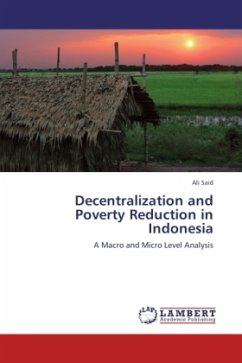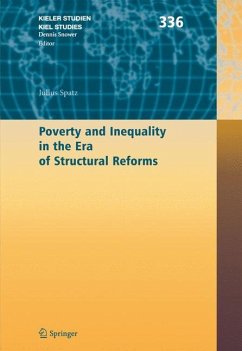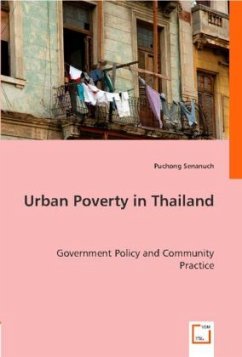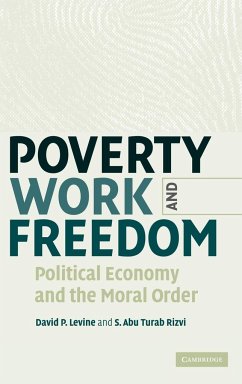
Decentralization and Poverty Reduction in Indonesia
A Macro and Micro Level Analysis
Versandkostenfrei!
Versandfertig in 6-10 Tagen
52,99 €
inkl. MwSt.

PAYBACK Punkte
26 °P sammeln!
Many studies have addressed the link between decentralization and poverty reduction, but most studies have lacked empirical evidence and failed to explain the mechanism through which decentralization has accelerated poverty reduction. This book represents an effort to fill the gap by examining the impact of the implementation of decentralization program on poverty reduction with special reference to Indonesia at both the macro and micro levels of analysis. At the macro level, some challenges facing the success of the implementation of decentralization program in the area of poverty reduction a...
Many studies have addressed the link between decentralization and poverty reduction, but most studies have lacked empirical evidence and failed to explain the mechanism through which decentralization has accelerated poverty reduction. This book represents an effort to fill the gap by examining the impact of the implementation of decentralization program on poverty reduction with special reference to Indonesia at both the macro and micro levels of analysis. At the macro level, some challenges facing the success of the implementation of decentralization program in the area of poverty reduction are addressed based on available data for districts in Java-Bali region. The link between decentralization and poverty reduction is further examined more deeply at the micro level based on a case study of two selected districts. In short, this book provides a better understanding of the decentralization-poverty nexus and should be especially useful for academic professionals, students, policymakers, donor agencies and anyone else working in the development area.












